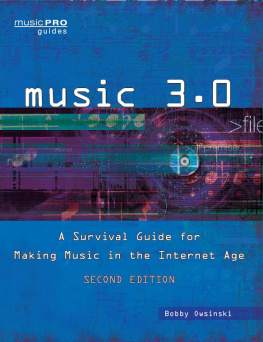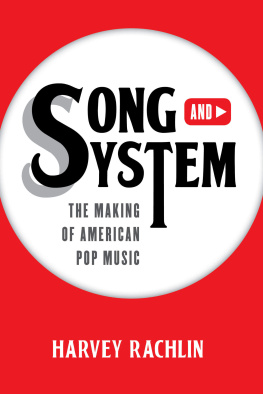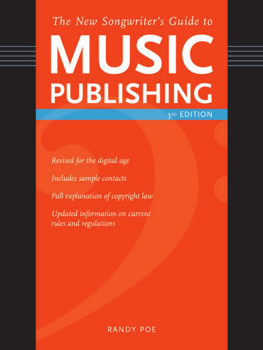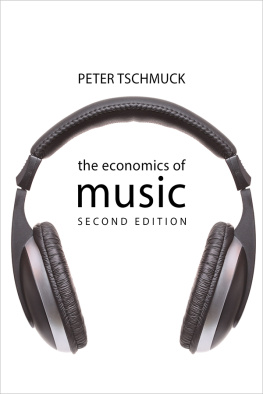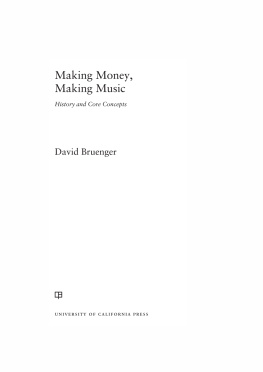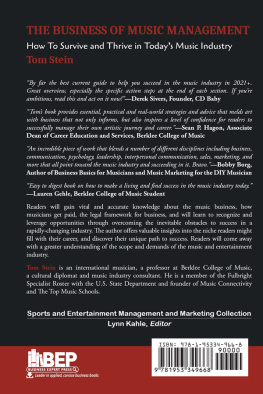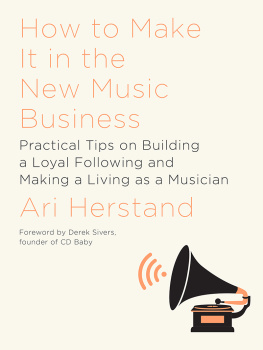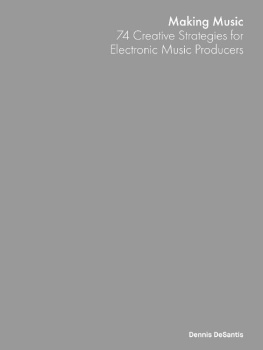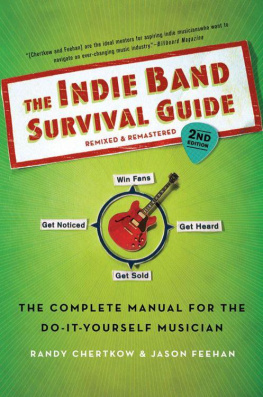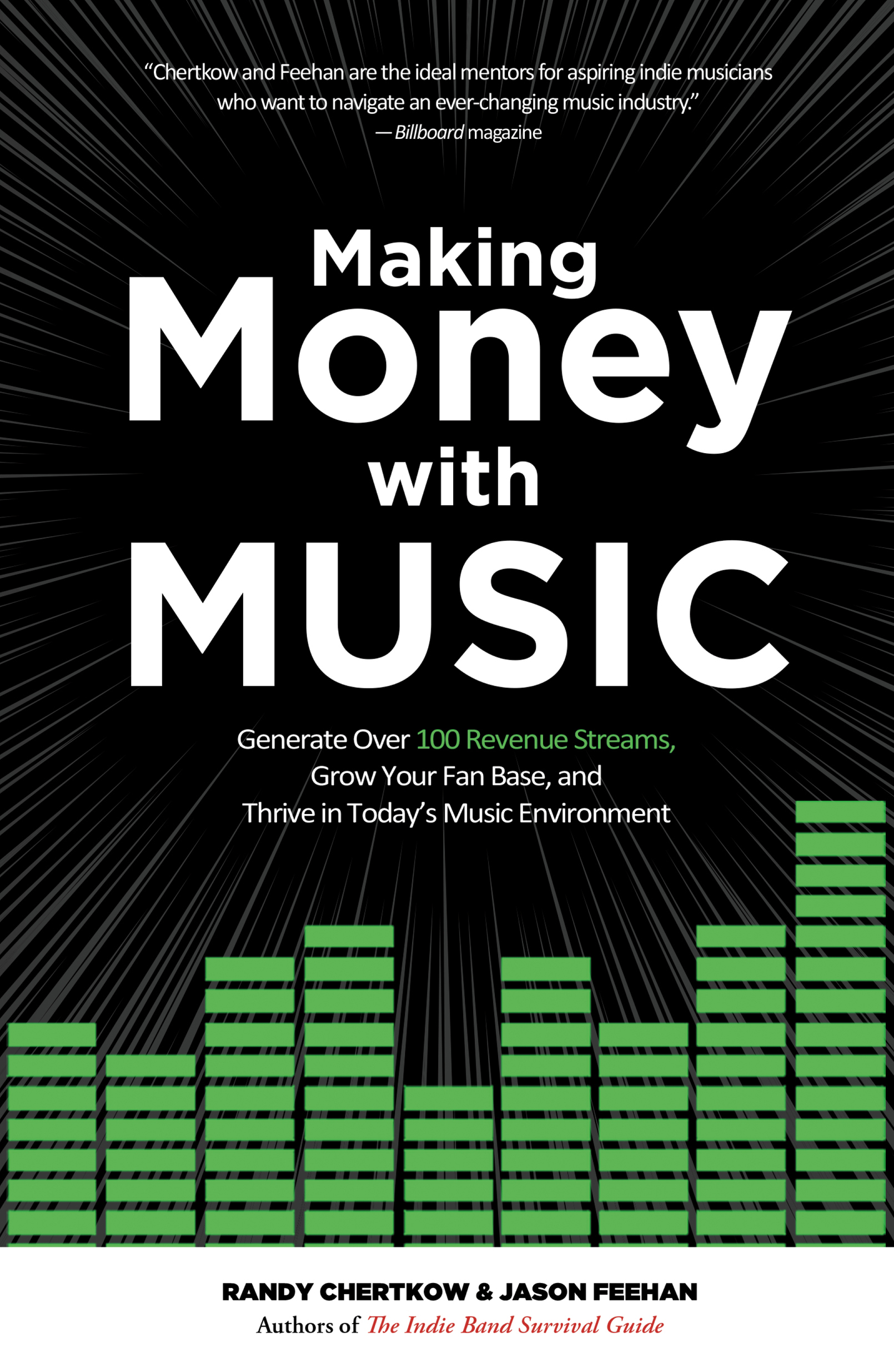Contents
Guide
Pagebreaks of the print version

The author and publisher have provided this e-book to you for your personal use only. You may not make this e-book publicly available in any way. Copyright infringement is against the law. If you believe the copy of this e-book you are reading infringes on the authors copyright, please notify the publisher at: us.macmillanusa.com/piracy.
Dedicated to musicians everywhere
Dude, I owe you guys money!
We had just finished the first part of our all-day talk when this excited musician, producer, and manager, who was making a living off his music, came up to us to share his story. Just a day before we were at SXSW interviewing music supervisors for an upcoming article series for Electronic Musician magazine, but, having been on a speaking tour around the country, we had scheduled one final talk before we headed back to our hometown of Chicago. When I saw you were coming to town, I had to come to this event. My bestselling album is because of what I learned from you about marketing and piggybacking. Its all because of you.
Its successes and comments like these that keep us researching, writing, speaking, and teaching. Its been motivating us for over a decade since we first started, back when we gave away a free PDF from our bands website in 2006 called The Indie Band Survival Guide . After thousands of downloads, it caught on across the blogosphere, and next thing we knew, Billboard magazine interviewed us about it. Then the Associated Press and Reuters. Finally, publishers were interested in turning it into a book. While we didnt set out to do all this, we felt it was critical to help others. In a sense, were similar to musicians who discover theyre good at mixing and become mixing engineers for other musicians, except what we do is explain what to do in todays music industry in concepts and words we musicians understand.
And thats what we are: musicians who just did it ourselves through trial and error and then shared with the world what to do and what to avoid. Our band, Beatnik Turtle, has released over five hundred songs spanning twenty albums, licensed music to Disney and Viacom, and written music for TV, films, and theater, including Chicagos Second City. In 2007, we released a song every single day of the year from our website TheSongOfTheDay.com. But after the book took off, we also became authors, journalists, instructors, public speakers, and consultants because so many reached out to us asking us to teach, write, and speak. It also helped that beyond being musicians, we also have expertise in law, IT, product management, marketing, and sales, all disciplines crucial to running a successful music business. One of us is an attorney, product manager, and project manager; the other a sales professional and an IT expert with a Masters in computer science.
The book youre holding was sparked by two things. The first was over five years ago when the Recording Academys San Francisco chapter (the organization behind the GRAMMYs) flew us out to speak to their Music Business Night School, which helps teach musicians to succeed in todays music environment. Rather than do our usual talk based on the critically acclaimed The Indie Band Survival Guide and The DIY Music Manual (Random House) or our DIY articles for Electronic Musician magazine, we decided to create a new one focused solely on how musicians could turn on new revenue streams. We called the talk Making Money with Music, and it was the highest rated of the year. This caused other chapters and music organizations around the country to bring us out to give the presentation.
The second spark was a government study completed by the city of Austin, the live music capital of the world. We learned about this pioneering survey after one of our Making Money with Music talks in Austin. Backstage at the event, we met Don Pitts (soundmusiccities.com), who was the head of the Austin music office at that time. He had commissioned the first-of-its-kind music survey (bit.ly/austincensus) so he could get a data-driven look into the actual health of Austins music economy.
The study revealed how music contributed billions of dollars in revenue to Austin by driving tourism, restaurant traffic, and music venue ticket sales, as well as how it supported many secondary businesses and jobs. But while the hotel and entertainment businesses were thriving, the census also revealed the stark reality that musicians were barely making a living in the new music environment. Over 80 percent of musicians reported difficulty making money, and this was having an extreme or strong impact on their livelihood and whether they stuck with music as a career. Nearly one-third of the over 1,800 musicians who answered the survey were earning $15,000 or less per year in pretax income (including all income sources). And approximately three-fourths of them were earning below the Austin Metropolitan Statistical Area mean annual wage.
In short, the studys four critical findings were:
Musicians dont make enough money to support themselves (including finding it hard to afford housing).
Musicians lack the music business knowledge and skills required to make money with music within todays music industry.
Musicians lack access and knowledge to the necessary resources and services that can help.
Musicians find it difficult to network and collaborate with others in their industry.
There have been more studies in music cities around the world since, and the findings show the same thing: musicians are struggling to make enough money with music . This puts music cities and their interconnected businesses, services, tourism, and economic revenue at serious risk. This is why music cities are collectively waking up to the need to help musicians generate revenue. To us, this includes educating musicians on how todays music industry works, informing musicians how to tap into new revenue streams to make a sustainable business, connecting musicians with resources and networking opportunities within their cities, and creating more music and musician-friendly ordinances to promote a live music scene and community.
But cities themselves cant solve the musician revenue problem directly. Only musicians can register their songs to ensure they get all the royalties generated worldwide theyre owed. Only musicians can determine their target audience and the best product and merchandise mix to sell at shows to maximize revenue. Only musicians can promote and publicize their releases and live events. They just need to learn how.
It wasnt until we started having the right conversation with our local music community that we learned what musicians need to know more than anything else these days, says Pitts, is what I call the fundamentalsthe basics on how to make money with music given the reality of todays tech-driven music environment. The field has changed, but musicians who learn the music business basics of this new music economy will thrive.
This book is our answer to the studies findings. Making Money with Music gives musicians a clear understanding of what they need to do to succeed in this new music environment and create more music for the world. We know musicians can make a living at music because weve interviewed many who are paying the rent or mortgage with their music business. Weve shared their lessons and methods and combined them with the best practices and frameworks here, within one book, so everyone can benefit.


